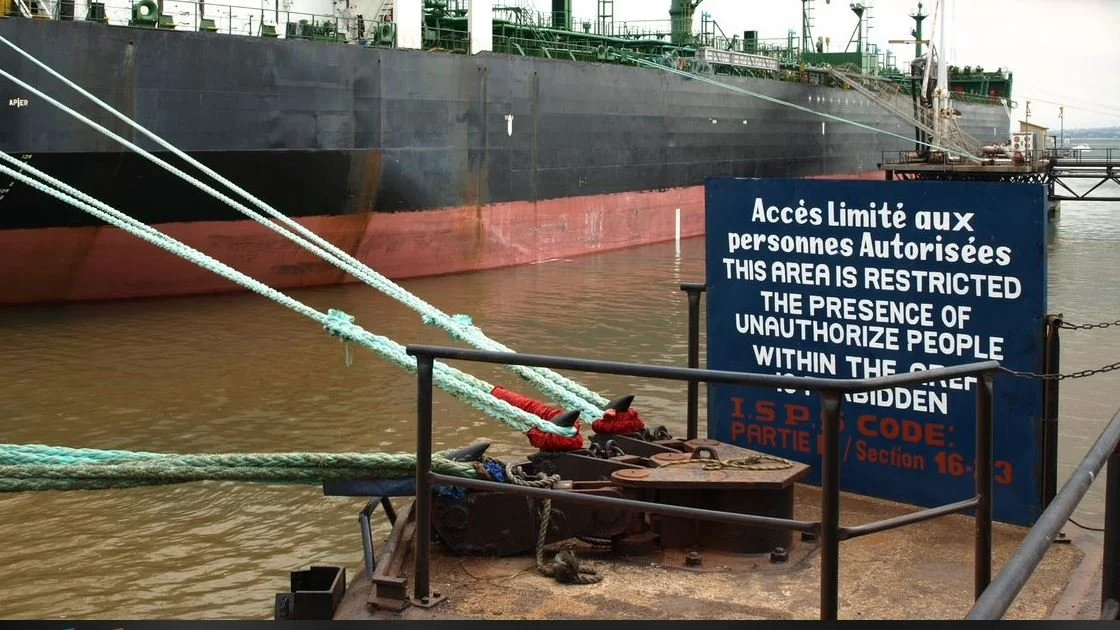
Port Security Assessments and Port Security Plans
As a Recognised Security Organisation, or RSO, Risk Intelligence regularly conducts a range of services for clients underpinned by the ISPS code. This includes assessing of the security level of ports and port facilities, delivered as a PSA or PFSA, as well as developing the corresponding Port or Port Facility Security Plan, PSP or PFSP, together with the port or port facility on behalf of the Danish authorities. Read more about these services below.
ISPS | PORT SECURITY REQUIREMENTS:
Port and Port Facility Security Assessments and Security Plans
To comply with the ISPS port security requirements, ports and port facilities must complete a regularly updated Port or Port Facility Security Assessment, PSA or PFSA, and implement it in a Port or Port Facility Security Plan, the PSP or PFSP. Risk Intelligence has been delivering this work since the ISPS code came into effect in 2004.
The ISPS code establishes definitions and procedures to unify the approach to the physical security of ports and port facilities, such as in the Port Security Assessment and Security Plan.
As large ports often have individual port facilities within their domain that are independently owned and operated, these are assessed separately. In such cases, the comprehensive Port Security Assessment will be conducted to form the basis of the Port Security Plan, and each port facility will be assessed separately with their respective PFSAs, which will inform the Port Facility Security Plan for each facility.
All assessments and security plans must be approved by the maritime authority of the port’s contracting government.
PORT SECURITY ASSESSMENTS:
Port Facility Security Assessment, PFSA
The PFSA is carried out by either the contracting government, a designated authority within that government or a Recognised Security Organisation, an RSO - like Risk Intelligence. Once completed, the PFSA is submitted to the contracting government for authorization. And of course, it should be reviewed regularly.
The port facility security assessment is developed in close cooperation with the port´s administration to ensure the plan includes specific national requirements as well as the international requirements mentioned in the ISPS Code´s section 15 “Port Facility Security Assessment”, and taking into account the guidance given in part B of the ISPS Code. If within the EU, also regulation (EC) No 725/2004 on enhancing ship and port facility security.
Deliverables:
On-Site Assessment
Port Facility Security Assessment Report, depending on the type of facility; ferry, cruise, oil, bulk, etc
Report of 40 – 90 pages
Port Security Assessment, PSA
The port security assessment is developed in close cooperation with the port´s administration to ensure the assessment includes specific national requirements and also the EU requirement of the Directive 2005/65/EC of the European Parliament of 20 October 2005.
The assessment will also take into account the specifications and details of different sections of a port and its adjacent areas, if these have an impact on security in the port and if deemed applicable by the relevant authority in the country, and taking into account the assessments for port facilities within their boundaries as carried out pursuant to Regulation (EC) No 725/2004.
Deliverables:
On-site survey
Port Security Assessment depending on the size and character of the port
Report of 40 – 80 pages
PORT SECURITY PLANS:
Port Facility Security Plan, PFSP
The port facility security plan is developed in close cooperation with the port´s administration to ensure the plan includes specific national requirements and also the international requirements mentioned in the ISPS Code´s section 16 “Port Facility Security Plan” also, taking into account the guidance given in part B of the ISPS Code and, if within EU, regulation (EC) No 725/2004 on enhancing ship and port facility security.
Deliverables:
Port Facility Security Plan depending on the type of facility; ferry, cruise, oil, bulk, etc.
Report of 40 – 90 pages
Port Security Plan, PSP
The port security plan is developed in close cooperation with the port´s administration to ensure the security plan includes specific national requirements and also the EU requirement of the Directive 2005/65/EC of the European Parliament of 20 October 2005.
Based on the findings of port security assessments, the security plan will adequately address the specifications and details of different sections of a port and will integrate the security plans for port facilities within their boundaries established pursuant to Regulation (EC) No 725/2004.
Deliverables:
Port Security Plan, depending on the size and character of the port
Report of 40 – 60 pages
TRAINING AND EXERCISES
ISPS training and exercises
Training programs and exercises are designed to optimize our clients’ use and understanding of security plans and procedures. Subsequently this improves the physical security at the facility in question by facilitating an understanding and respect of the value of security measures for employees of all levels.
Training and exercises are also designed to comply with local or international requirement i.e. ISPS, EU etc.
Port Facility Security Officer (PFSO) training
Training designated persons as Security Officers i.e. in accordance with the guidelines of the International Maritime Organization’s (IMO) model course 3.21, primarily for operations/companies in Denmark, but also available to clients outside Denmark.
The training may be tailored as an International Ship and Port Facility Security code (ISPS) “brush-up” or for designated persons with knowledge of the ISPS such as Ship Security Officers or security management functions at a facility.
Would you like more information?
Get in touch via the form below to discuss a port security assessment or a security plan - or learn more about any of the servies above:
Risk Intelligence A/S
Strandvejen 100
2900 Hellerup
Denmark
T: +45 70 26 62 30
F: +45 70 26 62 40
Email: info@riskintelligence.eu

